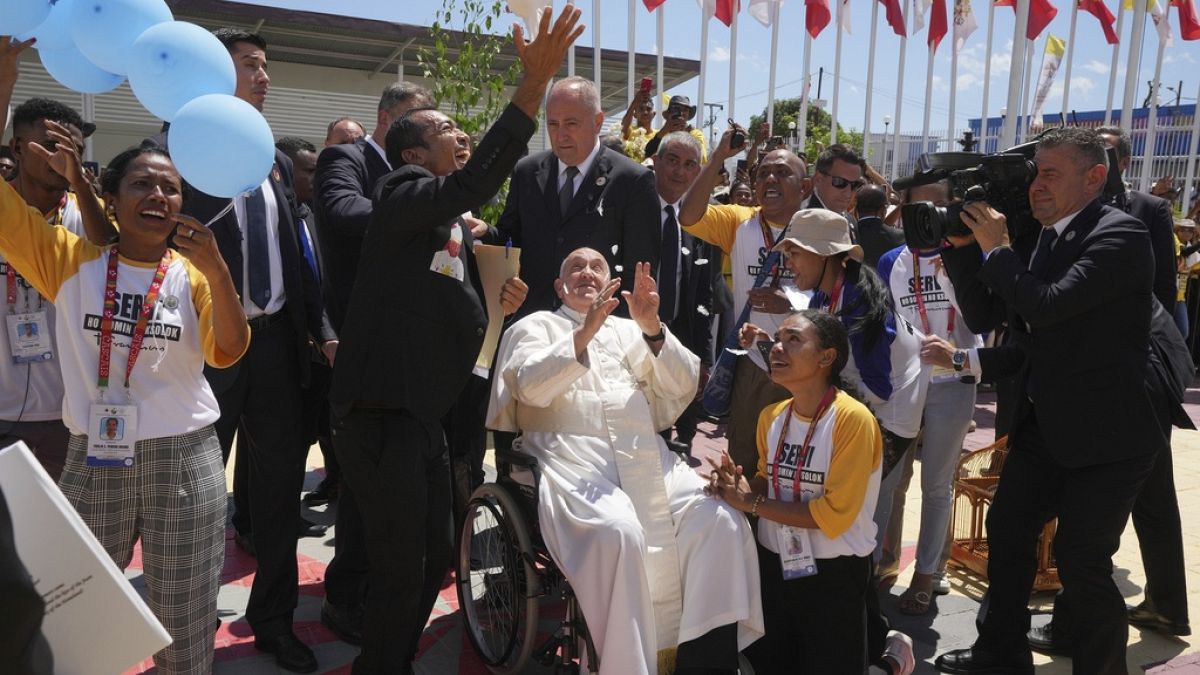Pope Francis recently concluded his trip through Southeast Asia and Oceania with a visit to Timor-Leste, Indonesia, and Papua New Guinea before heading to Singapore. His visit to Timor-Leste drew a massive crowd of 600,000 for a record-breaking mass, where he urged the country’s young people to continue building upon the foundations laid by previous generations. During his stay, Francis also warned against outside influences that could threaten the country’s culture and history, specifically mentioning the exploitation of natural resources by multinational companies.
Timor-Leste, a small country in Southeast Asia, gained independence from Indonesia in 2002 after years of struggle and sacrifice. Pope Francis emphasized the importance of preserving the memory of those who fought for the nation’s independence and warned the youth to beware of forces that might seek to alter their culture and history for their own gain. His visit to Timor-Leste was marked by a strong focus on the country’s youth, who make up the majority of the population and hold the key to its future development and prosperity.
After departing Timor-Leste, Pope Francis flew to Singapore for the final leg of his trip, which has been one of the longest and farthest of any head of the Catholic Church. During his travels through Southeast Asia and Oceania, Francis visited Indonesia and Papua New Guinea, clocking a total of 32,814 kilometers by air. The Pope’s visit to these countries highlights his dedication to addressing issues of poverty, exploitation, and environmental protection, especially in regions where these challenges are prevalent.
Throughout his trip, Pope Francis has been vocal about the need for multinational companies to fairly compensate local populations and protect the environment while exploiting natural resources. His warning to Timor-Leste’s youth about the dangers of outside influences seeking to exploit the country’s resources reflects his broader concern about the impact of unchecked commercial interests on vulnerable communities. By drawing attention to these issues during his travels, Francis continues to advocate for social justice and environmental sustainability on a global scale.
As he wrapped up his visit to Timor-Leste, Pope Francis urged the country’s youth to remember their history and the sacrifices made by previous generations to secure their independence. He reminded them of the importance of preserving their cultural identity and warned against the influence of “crocodiles” who seek to exploit their natural resources for personal gain. By addressing these pressing issues during his visit, Francis highlighted the need for ethical and responsible practices in the exploitation of natural resources in developing countries.
In conclusion, Pope Francis’s visit to Timor-Leste, Indonesia, Papua New Guinea, and Singapore underscored his commitment to addressing issues of poverty, exploitation, and environmental protection in the regions he visited. By engaging with the local populations and drawing attention to the challenges they face, Francis demonstrated his dedication to advocating for social justice and ethical practices in the exploitation of natural resources. His message to the youth of Timor-Leste to preserve their history and culture serves as a reminder of the importance of safeguarding the identity and heritage of vulnerable communities in the face of external pressures.











